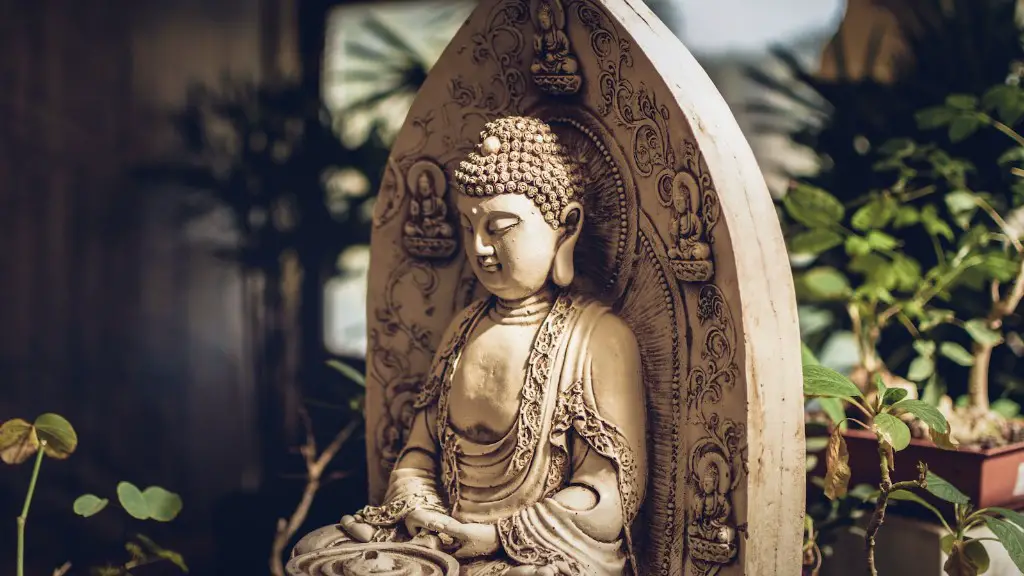Introduction to Brahman in Hinduism
The term Brahman often holds a deep spiritual significance in the Hindu religion, as it ultimately represents the divine or absolute reality within a philosophical framework.
A commonly-used definition is that Brahman is the metaphysical ultimate reality, the being whereby all other beings share a common origin. It is believed to encompass the entirety of the universe, encompassing all living and non-living things.
Brahman is often described as the divine force that exists beyond the physical world and connects all aspects of the universe. In essence, Brahman is the ultimate source of all truth, and it is believed to permeate the physical and spiritual realms, creating and maintaining balance and harmony.
In Hinduism, Brahman is often referred to as “the One”, as all of existence is understood to originate from Brahman. The two major Hindu scriptures, the Upanishads and Bhagavad Gita, espouse the concept of Brahman as an unchanging, immutable and all-encompassing Reality.
Many Hindus believe that Brahman is both an ontological, or absolute, and a transcendental source of all that exists. This means that Brahman is believed to be everything and nothing at the same time – it exists beyond the realms of individuality and form.
The concept of Brahman also underscores the idea of unity in Hinduism, that all beings originate and return to a single source. This is often expressed through the term “Advaita”, meaning “not two” – the notion that all beings are connected, and the same in essence.
Brahman has had a major influence on Hindu thought and culture, from influencing their philosophical teachings to shaping their social structure. This is evident in the Hindu belief system, which sees Brahman as the ultimate source of truth and ultimate power guiding all aspects of life.
Relationship between Brahman and Individual Souls
In Hinduism, Brahman is seen as being inseparable from the individual soul, or “Atman”. As the ultimate source of consciousness, Brahman is the source of all knowledge, wisdom, and life force. This relationship is known as “Atma-Brahman”.
This connection is believed to be essential to life; without Brahman, the individual soul is believed to be incomplete, unable to fully experience the world. As such, in many Hindu traditions, the goal of life is to reunite the Atman with Brahman, thus forming a union with the divine source.
This union is seen as the ultimate destination of all souls, as through it freedom from cyclic existence, or “Samsara”, is attained. Through this union, individuals are believed to experience a greater awareness and peace, as the two realities become one.
The idea of a union with Brahman is often used to explain the concept of Moksha, or liberation from earthly existence. According to Hinduism, Moksha is attained when the individual soul is reunited with Brahman, and is transformed in a state of perfect understanding, experience, and knowledge.
The union of Brahman and the individual soul is often seen as the source of spiritual knowledge and enlightenment. By reuniting with Brahman, one can gain access to knowledge, peace, and freedom that is unattainable in any other state.
Interaction between Brahman and the Universe
In Hinduism, Brahman is believed to consist of two parts – the Sattva, or immutable spirit, and the Rajas, or active principle. This belief stems from the notion that Brahman is the source of not only the individual soul, but of the entire universe.
The Sattva is believed to exist within the individual soul, while the Rajas is believed to exist within the physical world. This is essential to the Hindu belief that all of existence originates from a single source – Brahman. Both of these aspects are believed to be necessary for the universe to exist and for life to continue.
Therefore, Brahman not only serves as the foundation of all existence, but also actively participates in the life of the universe. As such, Brahman is seen as the source of life and creation, and is believed to be the ideal on which society should strive.
As such, Brahman is seen as being responsible for the cyclical nature of life and death, as well as for shaping the moral laws of the universe. The concepts of karma, dharma, and justice are all attributed to Brahman in Hinduism.
In addition, it believed that when souls exemplify the highest ideals of virtue, justice, and truth, they can attain the true knowledge of Brahman. Through this knowledge, Hindus believe that one can lead a life of greater peace, wisdom, and balance.
Brahman and the Nature of Reality
In Hinduism, Brahman is viewed as the ultimate source of all reality. As such, the beliefs and practices of Hinduism are intended to bring believers into closer union with this higher reality.
The Hindu concept of Brahman is mirrored in the notion of Brahman’s immanence, or that Brahman constantly penetrates and influences all facets of life. As such, Brahman is not seen as a distant, separate entity, but rather as a force that is continually present in the world.
In Hinduism, Brahman is believed to be the ultimate source of truth and knowledge. By seeking understanding of Brahman, one can gain direct knowledge of the nature of reality. This is why Hindus strive to cultivate a deeper connection and understanding of Brahman, in order to gain direct access to absolute truth.
It is also important to note that Brahman is believed to be both the ultimate truth and the source of joy and bliss. Hence, the attainment of Brahman is seen as the ultimate goal of the spiritual journey – one in which the individual soul is reunited with the source of all joy and knowledge.
As such, Hindus strive to cultivate an understanding of Brahman, in order to connect with this source of joy and bliss. Through this connection, individuals can gain direct knowledge and experience of the ultimate nature of reality.
Understanding Brahman Through Scriptures and Rituals
Hinduism has established a variety of ways of understanding Brahman and the nature of reality. The Upanishads and Bhagavad Gita are two of the most important scriptures in Hinduism, and often include descriptions of Brahman and its nature.
These scriptures provide insight into Hindu concepts of Brahman, as well as the relationship between Brahman and the individual soul. Furthermore, many of the rituals and practices of Hinduism are intended to bring one closer to Brahman, and to cultivate understanding of the ultimate nature of reality.
For example, devotional practices, such as worship and meditation, are believed to be essential to experiencing a deeper connection to Brahman. Similarly, practicing altruism and selfless service are believed to be important for gaining direct knowledge of Brahman.
Therefore, through scriptures and ritual practices, Hindus believe that they can gain a deeper understanding and connection to Brahman, and that this connection will lead them to direct knowledge of the ultimate nature of reality. As such, Hindus strive to cultivate a deeper understanding and connection to Brahman.
Symbolism of Brahman
Brahman holds great spiritual significance in the Hindu religion, and is often represented through various symbols. In Hinduism, Brahman is often depicted as a swan, which is seen as a symbol of pure vision.
The swan represents the ability to perceive truth, and also serves as a reminder of the importance of seeking truth. It is believed that by attaining knowledge of Brahman one can gain clarity and insight into the nature of reality.
In Hinduism, Brahman is also symbolized through various geometric shapes. Triangles, three-pronged tridents, and yantras are often used to represent Brahman, as they contain the three forces of creation and destruction that are described in the Upanishads.
The concept of Brahman is also represented through the image of Om, which is believed to encompass and contain the entirety of existence. This symbol is seen as a reminder of the interconnectedness of all things, and the ultimate unity of all beings in Brahman.
By understanding and appreciating these symbols, Hindus can gain a greater connection to Brahman, and ultimately a deeper understanding of the universe and the ultimate nature of reality.
Brahman and the Individual Soul
In Hinduism, Brahman is believed to be intimately connected to the individual soul, and to be the ultimate source of all knowledge, wisdom, and life. This connection is known as “Atma-Brahman”, and reflects the notion that Brahman is the source of all existence.
As such, it is believed that the soul cannot truly be complete without being connected to Brahman, as the individual soul exists in a state of incompleteness without a connection to the divine source. Thus, reuniting with Brahman is seen as essential to achieving a state of union with the divine, which is the ultimate goal of spiritual growth in Hinduism.
Furthermore, it is believed that when the individual soul is reunited with Brahman, it is transformed in a state of perfect understanding, experience, and knowledge. This is known as “Moksha”, or liberation from earthly existence.
Hindus believe that Moksha is the ultimate end of all souls, as it represents a state of bliss and awareness not attainable in any other understanding. Thus, Hindus strive to cultivate a deeper understanding of Brahman, and by doing so, gain access to this ultimate source of joy and knowledge.
Conclusion
In Hinduism, Brahman holds an important spiritual significance. It is seen as the ultimate source of all reality, and is believed to be the source of all knowledge and wisdom. Through seeking understanding of Brahman, individuals can gain access to the true nature of reality, and ultimately to a state of peace and joy.
Furthermore, Brahman is also essential to life; without a connection to Brahman, the individual soul is incomplete. As such, Hindus strive to cultivate a deeper connection and understanding of Brahman in order to gain access to the ultimate source of truth, knowledge, and bliss.



